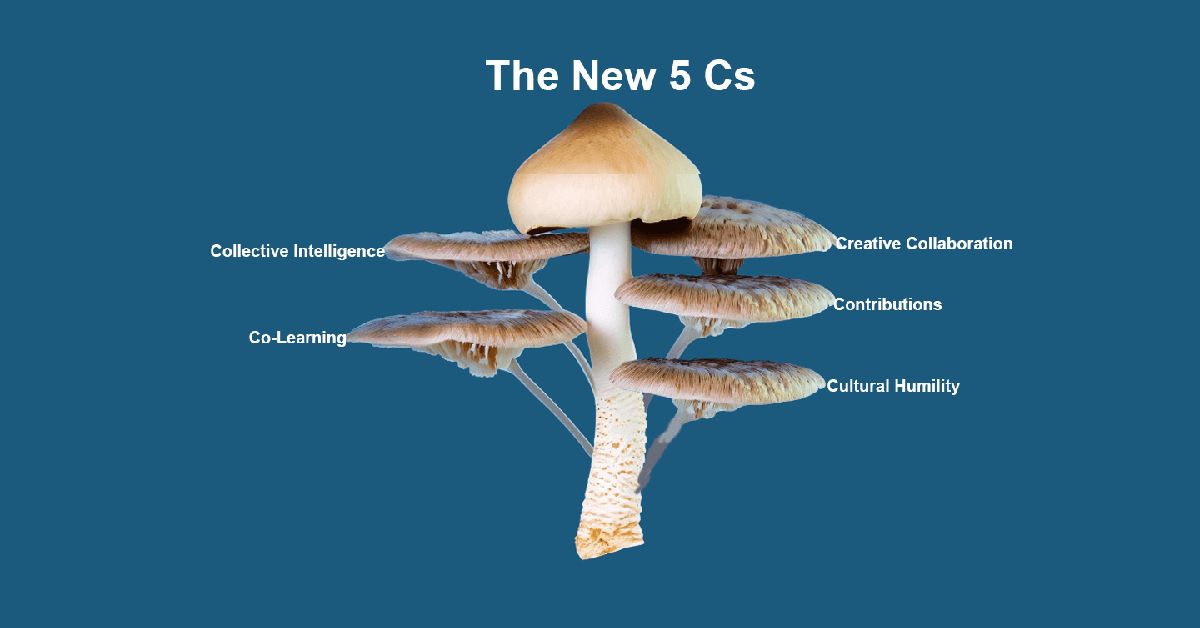November 13, 2023
[Second in a series: Beyond PBL; go to Part 1]
In case you missed it, fungi are pretty smart. Research reveals fungi, like mushrooms, as being closer to animals than plants. Fungal mycelia—the underground network we can’t see—show decision-making and alter their developmental patterns in response to interactions with other organisms. Mycelia may even be capable of spatial recognition and learning coupled with a facility for short-term memory.
Since we share almost 50% of our DNA with mushrooms, I consider that good news for humans.
It might also be a clue to the most radical change educators can make: To stop relying on the brain alone to explain intelligence. Intelligence is still a deep mystery to science, but our current view of ‘smart’ in education says it originates in a neural network composed of 86 billion neurons. It only happens inside us. Yet fungi tell us the opposite: Intelligence is communal and ecological, not individual. Since half of the 10 billion miles of DNA in our cells has a common ancestry, perhaps we should pay attention.
I’ve always taken the position that project-based learning is the ‘natural’ way to learn. PBL…


